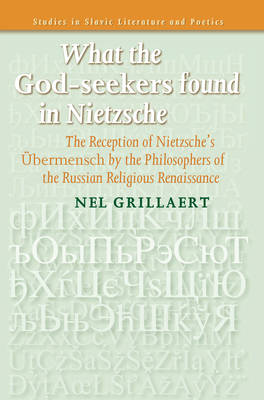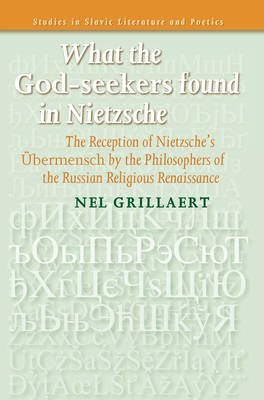
- Afhalen na 1 uur in een winkel met voorraad
- Gratis thuislevering in België vanaf € 30
- Ruim aanbod met 7 miljoen producten
- Afhalen na 1 uur in een winkel met voorraad
- Gratis thuislevering in België vanaf € 30
- Ruim aanbod met 7 miljoen producten
Zoeken
Omschrijving
At the end of the nineteenth and the beginning of the twentieth century, a large and varied group of the Russian intelligentsia became fascinated by Friedrich Nietzsche, whose provocative ideas inspired many of them to overcome obsolete traditions and to create new values. Paradoxically, the German philosopher, who vigorously challenged the established Christian worldview, invigorated the rich ferment of religious philosophy in the Russian Silver Age: his ideas served as a fruitful source of inspiration for the philosophers of the Russian religious renaissance, the so-called God-seekers, in their quest for a new religious consciousness. Especially Nietzsche's anthropology of the Übermensch was instrumental in their reformulation of Christianity. This book explores how three pivotal figures in the Russian religious reception of Nietzsche, i.e. Vladimir Solov'ëv, Dmitrii Merezhkovskii and Nikolai Berdiaev, engaged in a vacillating yet highly prolific debate with Nietzsche and how each of them appropriated his anthropology of the Übermensch in their religious philosophy. In order to explain Merezhkovskii's and Berdiaev's assessment of Nietzsche, the author highlights the significance of Dostoevskii: only by reading Nietzsche through the prism of Dostoevskii could both God-seekers pin down the religious ramifications of Nietzsche's thought.
This book will be of interest to anyone fascinated by Nietzsche, Dostoevskii, Russian religious philosophy, Russian history of ideas and reception studies.
This book will be of interest to anyone fascinated by Nietzsche, Dostoevskii, Russian religious philosophy, Russian history of ideas and reception studies.
Specificaties
Betrokkenen
- Auteur(s):
- Uitgeverij:
Inhoud
- Aantal bladzijden:
- 292
- Taal:
- Engels
- Reeks:
- Reeksnummer:
- nr. 50
Eigenschappen
- Productcode (EAN):
- 9789042024809
- Verschijningsdatum:
- 1/01/2008
- Uitvoering:
- Paperback
- Formaat:
- Trade paperback (VS)
- Afmetingen:
- 155 mm x 234 mm
- Gewicht:
- 412 g

Alleen bij Standaard Boekhandel
+ 296 punten op je klantenkaart van Standaard Boekhandel
Beoordelingen
We publiceren alleen reviews die voldoen aan de voorwaarden voor reviews. Bekijk onze voorwaarden voor reviews.








